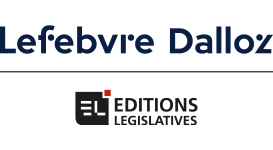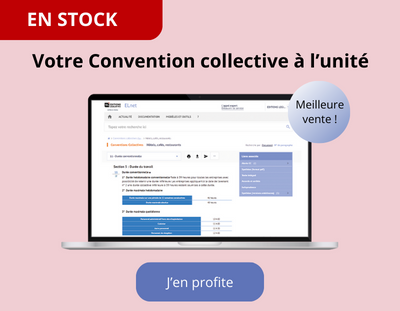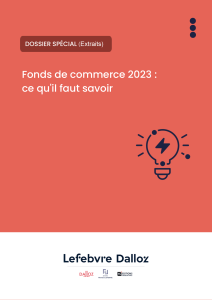What could legal departments in Lithuania, Sweden, Brazil, the USA or Hong-Kong possibly have in common ? An almost generalized, often rushed, shift to remote work. For better or for worse : for six lawyers from large foreign companies, maintaining social ties was not easy, but great ideas emerged from their creativity. Initiatives, lessons learned and ideal future work rhythm : let's see what they have to say.
It has been nine months since the beginning of the crisis. Legal counsels have shown that they were able to adapt and familiarize themselves to their new working conditions. Successfully : the job was done - and done well -, despite an increased workload, limited exchanges, and work invading their private spaces. But, because there is always a "but", remote work has brought its fair share of mental health issues, which include isolation, anxiety and exhaustion, to name a few. In Brazil, trends of depression have greatly increased, indicates Marcela Coelho, compliance officer at EcoRodovias.
Gestion d'entreprise
La gestion d’entreprise constitue l’essentiel de l’activité d’un dirigeant d’entreprise. Elle fait appel à un grand nombre de notions empruntées de la comptabilité, de la finance (gestion des risques au moyen de la gestion des actifs et des assurances professionnelles), du droit des affaires (statut juridique, contrats commerciaux, fiscalité, cadre réglementaire et légal de l’activité), de la gestion de ressources humaines...
There are little things that can help on a daily basis. Matt, a senior associate in a Japanese law firm temporarily based in Hong-Kong, has been trying to exercise more often and finds it relaxing to listen to uplifting music. Simona Grinevičienė has discovered that hiking could be a quiet and efficient way to unwind. However, these little things are far from being enough. Unanimously, they admit that they miss social interactions and have imagined several initiatives to maintain connections. And confess, honestly, that teams today only dream of one thing : being able to return to the office. "It's essential", they all say.
As Simona Grinevičienė, chief legal and procurement officer at Ignitis Grupe, rightly points out, "managers found it of paramount importance to talk to their team and listen to them". Nevertheless, they also try to make sure they do not lose sight of their coworkers : during their regular meetings, Simona Grinevičienė encourages people to turn on their camera, by turning hers on as well. She was more flexible at the beginning of the crisis, but as months passed by, she and other managers realized how crucial it was to actually see how people feel, look, and seem. All the while keeping in mind, of course, that they are entitled to the respect of their privacy. That being said, concerns regarding mental health were not just in the minds of the legal team. As soon as the COVID-19 outbreak began, her company organized consultations with psychologists, and established a telephone line for all employees to call if they need someone to talk to.
In an effort to maintain connections, Caroline Falconer's team, legal counsel in Sweden, has chosen to set up virtual coffee breaks every Wednesday, to discuss various subjects. They also hold team meetings once a week, which is much more than before the pandemic – when they would gather once a month -. The situation is similar regarding Marcela Coelho’s team, as they have team meetings every two weeks now. Before the pandemic, this was a rare occurance. At ContentSquare and Vinted, 1 : 1 meetings are also more frequent.
Virtual coffees and meetings are a great thing for companies to implement. Great news : they have also been able to bring social interactions to a whole new level. Arnaud Gouachon, chief legal officer at ContentSquare, was proud to see his team come up with new ideas to maintain a warm and fun atmosphere, and "did not think we could do that much, this well". Everybody’s creativity was enhanced : when his team secured a really important deal, all the employees received a box at home that was meant to be open during a group call. Inside the box, people were pleased to find a bottle of champagne and some balloons to celebrate. ContentSquare also organized a virtual magic show and cooking workshops, among other activities. Activities that, in Arnaud Gouachon’s mind, "created a different link, a more familial atmosphere". At Vattenfall, the legal team in the Nordics had a virtual Christmas party : a great occasion to sing and dance online.
In Simona Grinevičienė's mind, the idea is simple: "allowing the team to be a team, and to remain a team". In addition to virtual cafes, Ignitis' legal counsels also enjoy playing online games. Elsewhere in Lithuania, the HR team of Vinted has worked hard to develop a large range of activities, going from online sport sessions with a coach to activities dedicated to the children of the employees or virtual team buildings organized using the company's resources. Within the legal team, Alya Bloum explains they also have online lunches and improvised coffee breaks.
Office calling
Working from home, as convenient – and temporarily necessary as it might be, will never compensate being able to go back at the office. Sitting at our desk, chatting with our colleagues, feeling like a part of a team. Those are the little moments that remote work cannot offer. Undeniably, most of the work can be done from home. All of them agree on this fact. However, there is something else that they can agree upon as well : being able to work from the office is essential.
Caroline Falconer could not stress that enough, she "needs to go back to the office at some point". Not only is this important on an individual level, but it also benefits the team as a whole. Same goes with Simona Grinevičienė, who is convinced that "people really do have to know each other and meet to be able to work together. Work is better when people feel like they are a part of something". The ideal schedule ? A mix between remote and office work. 2 or 3 days could be spent at home, and the rest on the premises.
Matt reveals that everybody, at his firm, dreams of "finding back the balance". Even Marcela Coelho, who, for the time being, does not necessarily feel the need to go back to the office – the pros outweigh the cons, according to her. She thinks that when the pandemic is over, "it would be good to go back to the office at least twice a week", because "solving things might be easier in person". She also mentions an interesting aspect of physical interactions that no virtual meeting could ever replace : being able to observe body language.
Their companies are all starting to envision their future. And none of them is considering a work organization that would solely rely on remote work. In fact, they all seem to have the same picture in mind : a balance between both types of work, that would allow employees to choose the pace that suits them best.
Nos engagements
La meilleure actualisation du marché.
Un accompagnement gratuit de qualité.
Un éditeur de référence depuis 1947.
Des moyens de paiement adaptés et sécurisés.



![From one ocean to the other, the new virtual life of legal counsels [2]](https://www.editions-legislatives.fr/media/news-npa/resized/650/610520-adobestock_342077354_0_0.jpeg)





